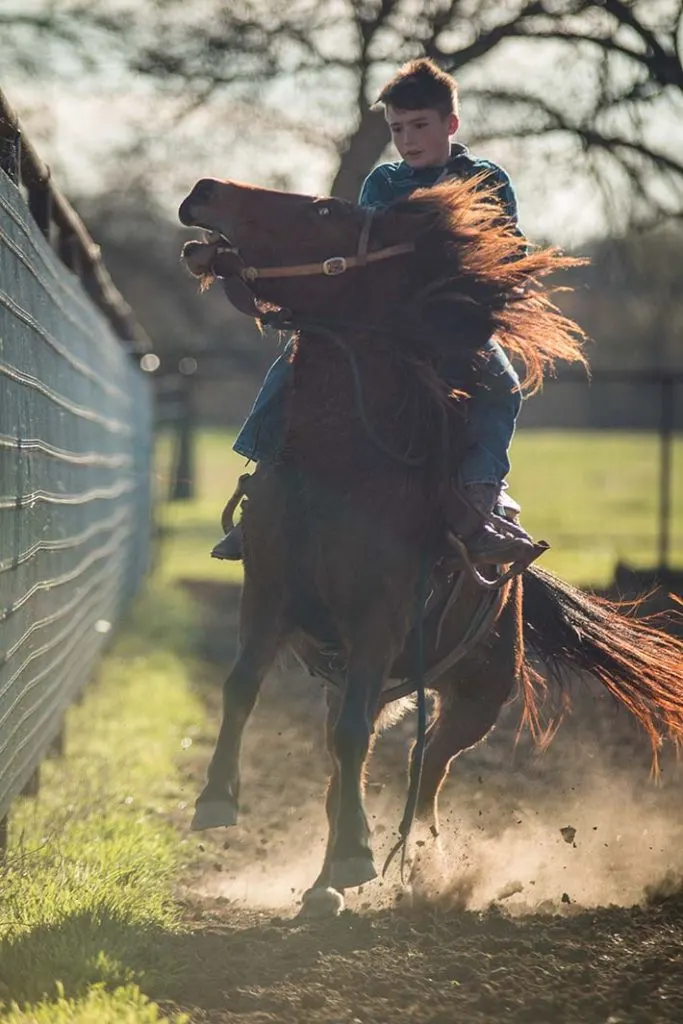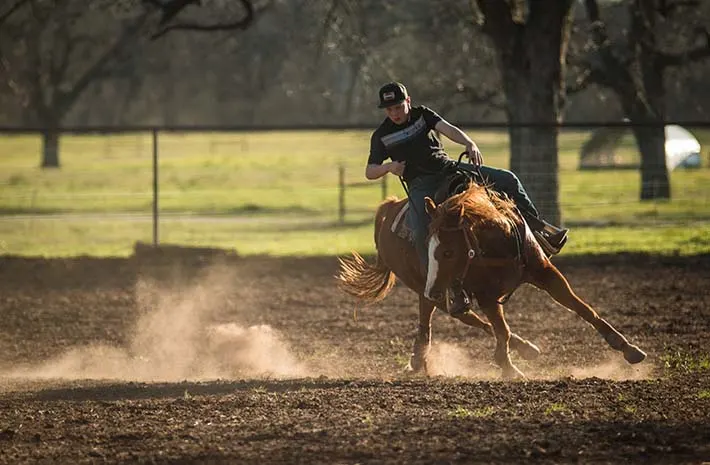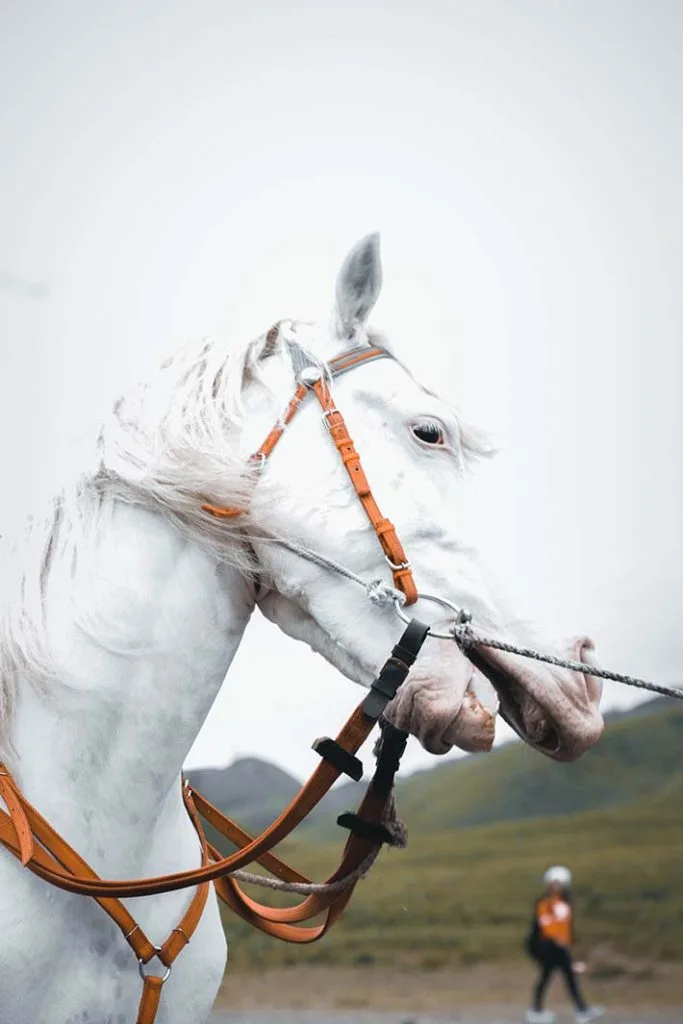Just like people, horses have different personalities. There are anxious horses and horses that are so calm they help calm down other horses. Some horses are more prone to anxiety while other horses are quiet and unflappable. Horses that are often anxious, with the ears scanning for scary sounds and eyes watching hypervigilant for something to spook at are often referred to by particular names within the equestrian community.
“hot horses” are horses that have a lot of energy and are often prone to being more anxious. When someone says a horse is “hot” they mean that the horse might have difficulty settling down in new or unfamiliar situations, might want to go faster than their rider, may be difficult to control under saddle, or may be more likely to spook than the average horse.

Sometimes hot horses are hot because of their unique personality, breeding, or a combination of the two – but often hot anxious horses are the result of an imbalance between energy taken in (feed) and energy used up (through exercise like horseback riding, driving, lunging, or even just moving around a pasture). Some hot horses are hot simply because they are young and immature or because they are taking in high-energy food while being confined to a small stall rather than a pasture.
The term “high strung horse” also refers to an anxious horse that has excess energy and an increased likelihood to have big reactions to small stimuli. High-strung horses can have a powerful impact on the horses around them, and sometimes a horse that is hot or high strong may seem to have a major personality shift, and calm down immediately, if switched to a different boarding stable or farm. Often, handlers use a stud chain to wear safely handle both hot horses and high-strung horses, but stud chains aren’t right for every handler- click here to learn why.
Methods for calming down an anxious horse
Talk to your veterinarian about how to calm down your anxious horse
Equine veterinarians understand that for horses to thrive, the horse/handler or horse/rider bond has to be maintained. Horses that are too hot to ride are a danger to themselves and their riders. Veterinarians have a number of prescription and nonprescription medications and supplements to help calm down anxious horses- from natural raspberry leaf supplements (often helpful for mares with hormonal anxiety) magnesium, and CBD to Zylkene or even an SSRI for horses.
Calm your horse down by giving them something interesting to focus on
Just like how giving an anxious person a puzzle or brainteaser can help them calm down, giving your horse an activity that requires focus can help reduce anxiety. For many horses, this can be stall toys (check out my Pinterest board on how to make your own stall toys below). When you are riding, you can help your horse focus by keeping your riding patterns interesting: If you always ride in circuits, start riding small serpentines, figure eights, and various sized circles while cueing your horse to stay supple and properly bent.
Consider the source of your horses anxiety
Is your horse always anxious or only when riding? Does your horse go from calm to anxious when other horses are being ridden, or a particular horse or human is in the area?
Noticing when the anxiety begins for your horse can be a powerful clue to figure out the trigger and help calm your horse down for good. If your horse is reacting to a particular experience or person, you can choose to eliminate that trigger from their environment or use positive reinforcement to work with the horse until they no longer have an anxious reaction to that stimulus.
For example, one student believes that she simply had an anxious horse, but in noticing that the horse’s anxiety only occurred under saddle, but not when riding the horse in a simple halter, we were able to determine that the root of the horse’s anxiety was the bit.

Let them move to calm an anxious horse down
Horses are wired to flee from danger, and while in today’s environment on modern farms simply running away is not a productive possibility, you can tap into your horses instincts by helping your anxious horse move. Although they can’t bolt into the next county, you can place your horse on a lunge line or in a round pen and help them get some of that nervous energy expended in an evolutionarily appropriate way.
After a horse has had a good run, not only will their body be tired but their brains will be more capable of sending calming signals letting the horse know that they have escaped the danger that was making them anxious.
Make sure your anxious horse has plenty of turnout
The benefit of gentle 24/7 movement cannot be overstated when it comes to a discussion of ways to calm down an anxious horse. You probably don’t think of grazing as a calorie-burning activity, but hours spent slowly meandering around a pasture provides physical support for calming a horse down- and the psychological impact of a horse having plenty of space to move in cannot be overstated.

Pair up your anxious horse with a calm buddy
I once had the opportunity to visit Isabella Werth’s training stable in Germany. One of the things that surprised me most about the visit to that Olympic training facility was the number of tiny ponies in residences! It turns out, many of these Grand Prix horses used in Olympic competitions are also highly anxious horses and in order to help calm these horses down they spent almost every hour of their day with a plodding, calm, and diminutive pony at their side.
Communal stabling has fallen out of favor in the United States, but when stalls are slightly oversized and have soft rubber stall mats, communal stables can be a safe way to give horses the horse-to-horse emotional support that these emotional creatures need to stay calm. Read our article on communal stabling to learn whether it might be right for your horse.
